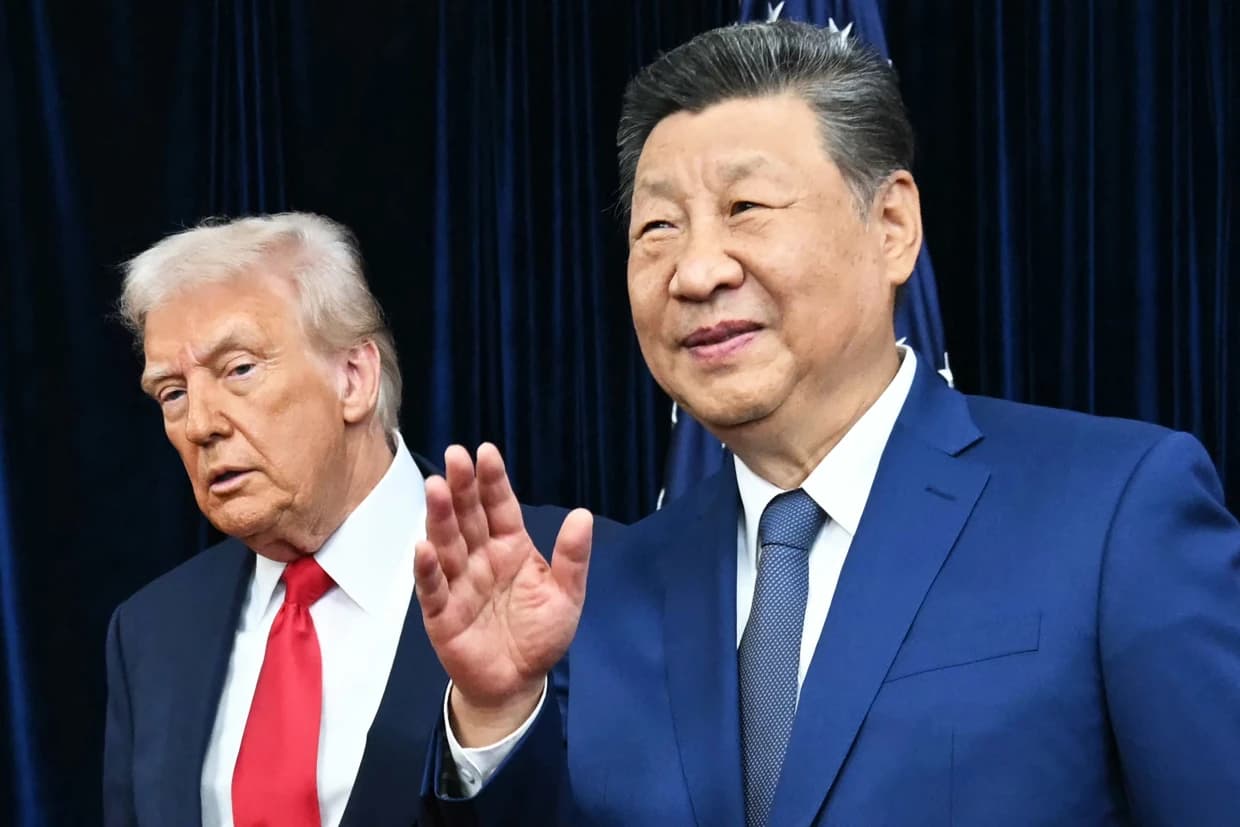We're loading the full news article for you. This includes the article content, images, author information, and related articles.
A high-stakes agreement between the world's two largest economies to lower trade tariffs and collaborate on ending the Ukraine war could signal a period of global economic stability, with significant implications for Kenya's trade and foreign policy.

BUSAN, South Korea – United States President Donald Trump and Chinese President Xi Jinping announced a significant agreement on Thursday, October 30, 2025, to de-escalate their protracted trade war and initiate cooperation on resolving the conflict in Ukraine. The deal, struck during a 100-minute meeting on the sidelines of the Asia-Pacific Economic Cooperation (APEC) summit, includes a U.S. tariff reduction in exchange for Chinese commitments to curb the trade of fentanyl precursor chemicals.
In what he termed a “great success,” President Trump confirmed to reporters that the United States would lower its overall tariff rate on Chinese imports from 57% to 47%. This reduction is primarily linked to the halving of a specific 20% tariff imposed over China's alleged role in the fentanyl trade, which will now be set at 10%. The move follows President Xi’s pledge that Beijing would “work very hard” to stop the flow of the synthetic opioid's ingredients. China’s Ministry of Commerce later confirmed it would adjust its own countermeasures accordingly.
The agreement also addresses other major trade irritants. According to statements from President Trump, China has agreed to resume immediate purchases of “tremendous amounts” of U.S. soybeans and other agricultural products, a crucial development for American farmers hit hard by retaliatory tariffs. Furthermore, a potential crisis over rare earth minerals—critical for high-tech manufacturing—was averted. Trump announced a one-year agreement where China will not proceed with planned export controls, stating the issue was now “settled.”
In a notable geopolitical development, the two leaders agreed to collaborate on seeking a resolution to the war in Ukraine. “Ukraine came up very strongly. We talked about it for a long time, and we're both going to work together to see if we can get something,” Trump stated aboard Air Force One after the meeting. This marks a potential shift in Beijing's position, which has officially maintained neutrality while providing significant economic support to Russia. While details of the cooperation remain sparse, the joint commitment itself is a significant outcome of the summit. Chinese state media reported that President Xi called for the two powers to “focus on long-term benefits brought by cooperation rather than falling into vicious cycle of retaliation.”
The détente between Washington and Beijing carries substantial weight for Kenya. As a nation navigating complex relationships with both superpowers, a reduction in global trade tensions could foster a more stable economic environment. China is Kenya's largest trading partner, and the U.S. is its fifth-largest. A cooling of the trade war may lead to more predictable import costs for Kenyan businesses and potentially lower prices for consumers.
Economists suggest that increased global stability could strengthen the Kenyan shilling and reduce volatility in fuel and commodity markets. Furthermore, a less adversarial relationship between the U.S. and China may ease the diplomatic pressure on Kenya and other African nations to align with one side over the other, creating a more favorable climate for multilateralism and independent foreign policy.
The meeting in Busan, held in a modest building at Gimhae Air Base, was the first face-to-face encounter between the two leaders since 2019. President Trump described the talks in glowing terms, rating them a “12 out of 10,” and announced plans to visit Beijing in April, with a reciprocal visit by Xi to the U.S. expected later. President Xi, in remarks reported by state agency Xinhua, was more measured, stating that their respective trade teams had “reached consensus on solutions to problems.”
Keep the conversation in one place—threads here stay linked to the story and in the forums.
Sign in to start a discussion
Start a conversation about this story and keep it linked here.
Other hot threads
E-sports and Gaming Community in Kenya
Active 9 months ago
The Role of Technology in Modern Agriculture (AgriTech)
Active 9 months ago
Popular Recreational Activities Across Counties
Active 9 months ago
Investing in Youth Sports Development Programs
Active 9 months ago